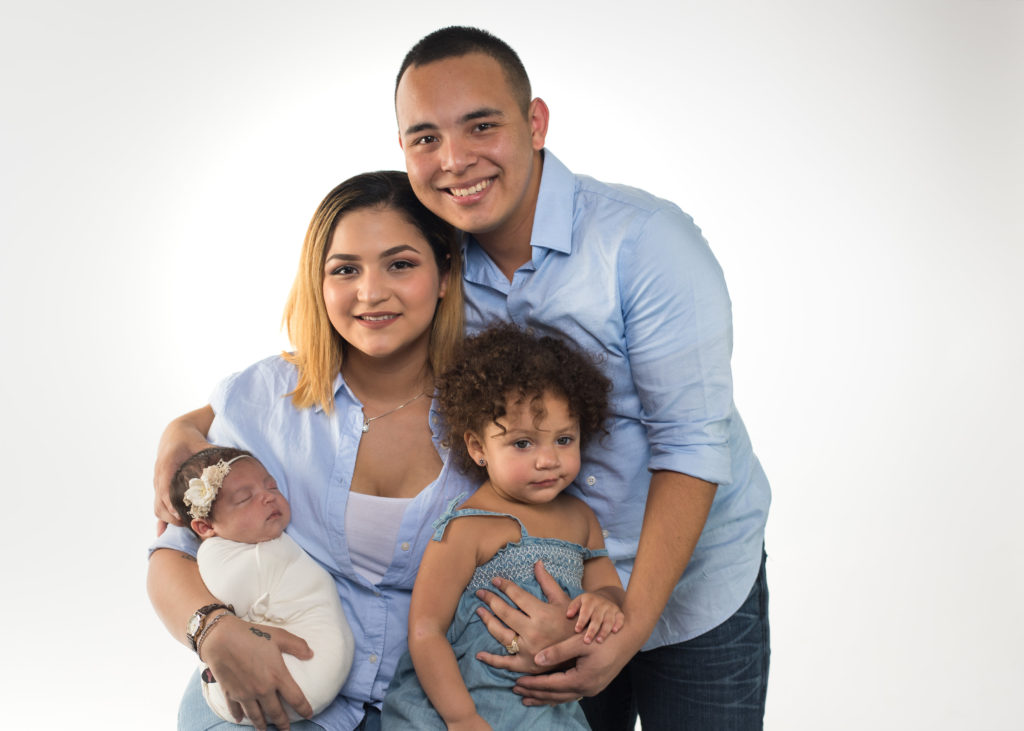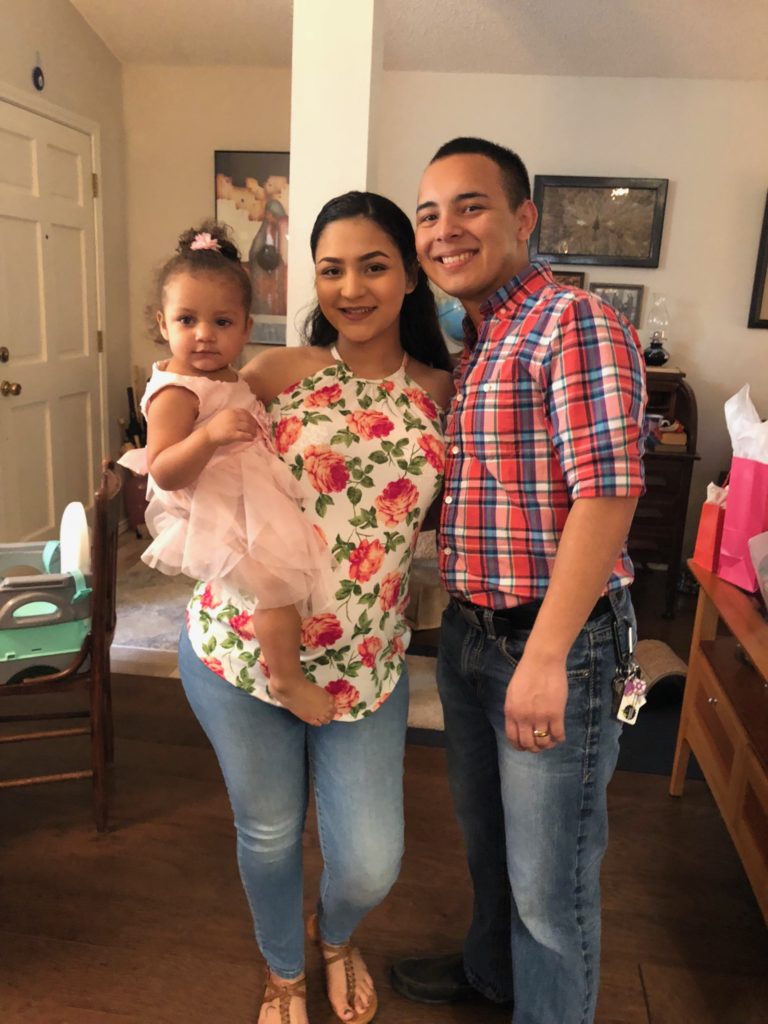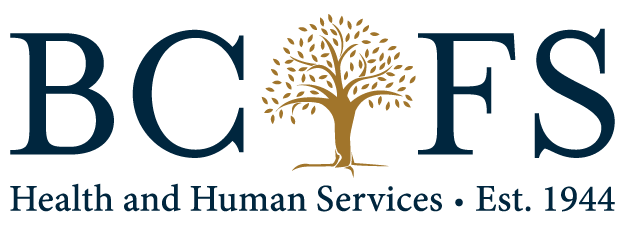At 17 years old, Meydi Pineda is not only gearing up for college, but also juggling – and excelling at – being a mother, wife, caregiver, and role model for other youth growing up in foster care. But it hasn’t been easy.
Meydi is the oldest of four children. Her mom, a single mother, worked full-time, and often tasked Meydi with taking care of her three younger siblings. When one of the younger kids got sick or needed someone to watch over them, it was Meydi who had to stay home from school to take care of them.

Child Protective Services became involved in Meydi’s life when she was twelve years old as a result of physical and emotional abuse taking place in the home. Her younger siblings, now aged eleven, six, and two, have remained in the care of Meydi’s mother.
For the three years that followed, Meydi spent time in and out of various foster homes and juvenile centers. At fifteen, she became pregnant… and gained a new perspective on life.
“I decided I wanted to be the parent I never had, for my daughter.”
But how?
Meydi enrolled in the Texas Preparation for Adult Living (PAL) program provided by BCFS Health and Human Services-San Antonio after being referred by the Texas Department of Family and Protective Services (DFPS). “Taking [the classes] really helped me gain confidence in myself, and reminded me that I could – and was – thriving after foster care. In the program [I learned] to manage my finances, plus how to maintain good credit and keep up with my bills.”
Meydi also enrolled in an academic credit recovery program to make up for the schooling she missed. At the age of sixteen with an infant at home, she graduated high school. She began working to provide for her family, and then got married. The new family’s plan is for her husband to be the primary earner while Meydi takes care of their two daughters and prepares to start college.
I see a bright future ahead for her because she sets goals for herself and doesn’t let anything get in the way of her ambition.

As one of Meydi’s PAL Training Facilitators, I got to work with Meydi for thirty hours spread out over several days of fast-paced life skills training. PAL Training classes bring youth in foster care together to learn and work as a group. Meydi made an impression on me immediately with how quickly she learned and used her knowledge to take on a leadership role within the group. She took the initiative to schedule her classes with me and ensure that she had transportation to each of them, all while taking care of her family. I see a bright future ahead for her because she sets goals for herself and doesn’t let anything get in the way of her ambition. She has become resilient through life’s challenges with an impressive grace, and her positivity and maturity at 17 years old sets an example for other youth in the program.
In college, Meydi plans on majoring in criminal justice. She credits BCFS-San Antonio’s PAL program with preparing her for this next phase of her life.
“Ms. Bailey and Mr. Christopher really made the class informative and easy to understand, while providing a fun, comfortable environment,” she says, “which helped me take in the most out of the classes… I plan on putting everything I learned to good use.”
“It’s rare to see a young person be so proactive and take control of their own future,” says BCFS-San Antonio PAL Training Facilitator Christopher Hansen. “Meydi is only seventeen, but she has worked hard to create an environment in which support and love is constant. We are eager and excited to be a part of her continued success.”
by Bailey Stewart
What is “PAL?”
BCFS Health and Human Services provides the State of Texas’ Preparation for Adult Living (PAL) program, which ensures older youth in foster/kinship care are prepared for life on their own after “aging out” of state care. At any given time, there are about 3,500 youth 16 years of age and older in substitute care throughout Texas.
Preparing youth for adulthood is much more than how to balance a checkbook and sign a lease (though those lessons are included, too!). PAL encourages and empowers youth, in turn building their self-esteem and their ability to make responsible decisions. PAL helps youth be prepared to face the challenges of adulthood and independence.

